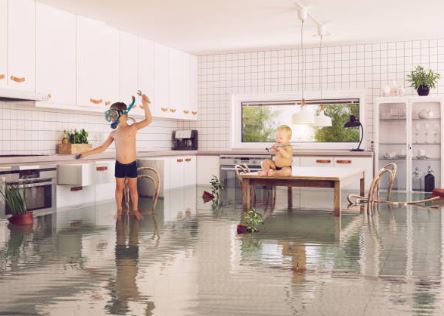A Plumbing Emergency: What You Need to Know
 Introduction
Introduction
Plumbing emergencies can strike unexpectedly, causing significant stress and inconvenience for homeowners. When a plumbing issue arises, quick action is essential to prevent further damage and costly repairs. In this article, we will explore common plumbing emergencies, how to identify them, and steps to take when facing such situations.
Understanding a Plumbing Emergency
A plumbing emergency is any sudden and severe issue that disrupts the normal functioning of your plumbing system. It requires immediate attention to avoid water damage and potential health hazards. Being aware of common plumbing emergencies can help you act swiftly when faced with one.
Common Causes of Plumbing Emergencies
- Burst Pipes: Freezing temperatures or excessive pressure can cause pipes to burst, leading to flooding and property damage.
- Clogged Drains: Accumulation of debris, grease, or foreign objects in drains can result in clogs, causing water backups.
- Sewer Line Blockages: Tree roots, debris, or collapsed pipes can block the main sewer line, causing sewage to back up into your home.
- Water Heater Malfunctions: A faulty water heater can leak or malfunction, leading to potential scalding or property damage.
Signs of a Plumbing Emergency
Knowing the warning signs of a plumbing emergency can help you take action before the situation worsens.
- Sudden Drop in Water Pressure: A significant decrease in water pressure could indicate a burst pipe or a major leak.
- Unpleasant Odors: Foul smells could suggest a sewer line issue or a backed-up drain.
- Water Backing Up: Water backing up in sinks, tubs, or toilets is a clear indication of a clogged drain or sewer line.
- Water Leaks: Any visible water leaks, no matter how small, should be addressed promptly to prevent further damage.
What to Do in a Plumbing Emergency
In the event of a plumbing emergency, follow these steps to mitigate the damage:
- Shutting Off the Water Supply: Locate the main water shut-off valve and turn it off to stop the water flow.
- Containing Small Leaks: Use towels or buckets to contain small leaks temporarily.
- Clearing Clogged Drains: Avoid using chemical drain cleaners and try using a plunger or a plumbing snake to clear the blockage.
- Handling Sewer Line Blockages: If you suspect a sewer line blockage, avoid using water in your home and call a professional plumber immediately.
Hiring a Professional Plumber
During a plumbing emergency, it’s crucial to have a reliable plumber by your side. Consider the following when hiring a plumbing service:
- Qualities to Look for in a Plumbing Service: Choose a licensed, insured, and experienced plumber who offers emergency services.
- Questions to Ask Before Hiring: Inquire about their response time, pricing, and warranties on their work.
Preventing Plumbing Emergencies
While some emergencies are unavoidable, preventive measures can reduce the risk:
- Regular Maintenance: Schedule regular inspections and maintenance to catch potential issues early.
- Being Mindful of What You Flush: Avoid flushing items that can clog your pipes, such as wipes and hygiene products.
- Avoiding DIY Fixes: Instead of attempting DIY fixes, call a professional plumber to handle the problem effectively.
Conclusion
Being prepared and knowing how to react during a plumbing emergency can save you from extensive damage and expenses. Remember to act swiftly, shut off the water supply, and call a reputable plumber for assistance. With preventive measures and professional help, you can minimize the risk of future plumbing emergencies.
FAQs
- Can I use chemical drain cleaners during a plumbing emergency? It’s best to avoid using chemical drain cleaners as they can worsen the situation and harm your pipes. Use alternative methods like plungers or snakes.
- How can I find the main water shut-off valve in my home? The main water shut-off valve is usually located near the water meter, often in the basement or near the water heater.
- Are plumbing emergencies covered by homeowners’ insurance? The coverage may vary depending on your insurance policy. Check with your provider to understand the extent of coverage for plumbing emergencies.
- Can I fix a burst pipe myself? Repairing a burst pipe requires expertise and specialized tools. It’s best to leave it to a professional plumber to ensure proper and safe repairs.
- How often should I schedule plumbing maintenance? Regular plumbing maintenance should be scheduled at least once a year to detect and address potential issues before they escalate.
Need to contact a plumber then call us at 0409 364 858 or contact us here
Here are some great reading about plumbing right here.
Tradelink And or Reece’s are a good place to start for fine tapware.

